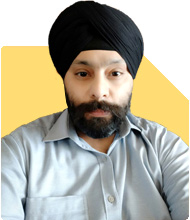Ramalingam Kalirajan |7831 Answers |Ask -Follow
Mutual Funds, Financial Planning Expert - Answered on Apr 16, 2024
He has an MBA in finance from the University of Madras and is a certified financial planner.
He is the director and chief financial planner at Holistic Investment, a Chennai-based firm that offers financial planning and wealth management advice.... more

GOOD MORNING Dr , request to suggest for a health policy for a person who works in sea ( say approx 200kms away from shore) for 50 to 90 days at a stretch & having break for rest( 2 to 5 weeks) & resume likely again 50 to 90 days( work location in gulf areas ie abudhabi, Quattar, Soudi, Iran etc)Base stay in viskhapatnam AndhraPradesh India.Kindly recommend suitable policy to meet this nature of policy ( helicopter ambulance is needed to shift from ship to shore admit in hospital).Trust our requirement is understood ,kindly do needful. With best regards, YPRaju
Global Health Policies: These policies offer coverage both internationally and domestically. They provide extensive coverage for hospitalization, outpatient treatments, and emergency medical evacuation, including helicopter ambulance services.
Marine Crew Insurance: Specialized policies designed for individuals working in marine or offshore sectors. They offer coverage tailored to the needs of seafarers, including emergency medical evacuation.
International Health Insurance: These policies offer worldwide coverage and are suitable for individuals who travel frequently for work. They provide comprehensive coverage for medical expenses, including emergency services and evacuation.
Critical Illness Cover: Considering the nature of your work and frequent travels, a critical illness cover can be added to your health insurance policy to provide financial support in case of serious illnesses.
Things to Consider:
Coverage Area: Ensure the policy covers medical treatments in the countries you frequent for work.
Emergency Evacuation: Confirm that the policy includes coverage for emergency medical evacuation, including helicopter ambulance services.
Policy Renewability: Opt for a policy with lifetime renewability to ensure continuous coverage.
Sum Insured: Choose a sum insured amount based on your healthcare needs and the cost of medical treatments in the countries you visit.
Please consult with an insurance advisor or broker to find the best policy that meets your specific requirements and provides comprehensive coverage both in India and internationally. Ensure you read the policy documents carefully to understand the coverage, exclusions, and terms and conditions before purchasing.
You may like to see similar questions and answers below
Sanjib Jha |66 Answers |Ask -Follow
Insurance Expert - Answered on May 31, 2022
Sanjib Jha |66 Answers |Ask -Follow
Insurance Expert - Answered on Oct 12, 2022
Sanjib Jha |66 Answers |Ask -Follow
Insurance Expert - Answered on Apr 13, 2023
Milind Vadjikar |971 Answers |Ask -Follow
Insurance, Stocks, MF, PF Expert - Answered on Nov 16, 2024
Anu Krishna |1482 Answers |Ask -Follow
Relationships Expert, Mind Coach - Answered on Feb 05, 2025
Anu Krishna |1482 Answers |Ask -Follow
Relationships Expert, Mind Coach - Answered on Feb 05, 2025
Inderpaul Singh |4 Answers |Ask -Follow
Leadership Coach - Answered on Feb 05, 2025
Ramalingam Kalirajan |7831 Answers |Ask -Follow
Mutual Funds, Financial Planning Expert - Answered on Feb 05, 2025
Ramalingam Kalirajan |7831 Answers |Ask -Follow
Mutual Funds, Financial Planning Expert - Answered on Feb 05, 2025
Radheshyam Zanwar |1175 Answers |Ask -Follow
MHT-CET, IIT-JEE, NEET-UG Expert - Answered on Feb 05, 2025
Dr Dipankar Dutta |749 Answers |Ask -Follow
Tech Careers and Skill Development Expert - Answered on Feb 04, 2025
Milind Vadjikar |971 Answers |Ask -Follow
Insurance, Stocks, MF, PF Expert - Answered on Feb 04, 2025
Kanchan Rai |525 Answers |Ask -Follow
Relationships Expert, Mind Coach - Answered on Feb 04, 2025
Kanchan Rai |525 Answers |Ask -Follow
Relationships Expert, Mind Coach - Answered on Feb 04, 2025




























